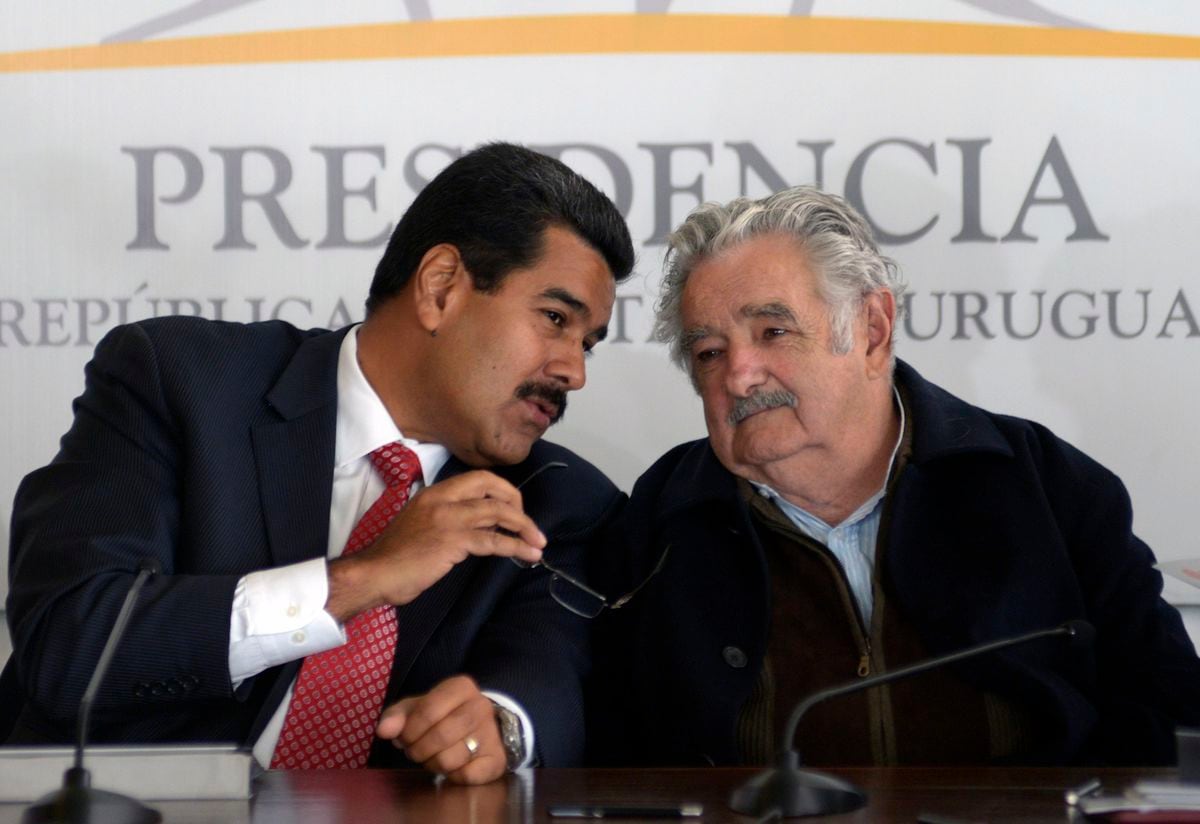The wave of imprisonments in Venezuela has once again raised alarms about the Government of Nicolás Maduro.
In the region, several countries have rejected the arrest of activist Rocío San Miguel, allegedly involved in a conspiracy to assassinate the president, and the expulsion of the representatives of the Office of the United Nations High Commissioner for Human Rights.
The leftist leader and former Uruguayan president José Mujica has also distanced himself from Maduro's Chavismo, to which he was in other times related.
“Venezuela has an authoritarian government that goes the other way,” he said this Friday before a group of journalists who asked him if there is a dictatorship in Venezuela.
“What does the word dictatorship mean?
Where does the concept of dictatorship originate?
It was a decision of the Roman Empire when the potatoes were burning, that they concentrated power and gave it to one guy alone, to rule.
No disagreement or anything.
Closed order because in moments of danger it cannot be discussed.
There has to be someone in charge.
There the figure of the dictator was invented.
Venezuela is an authoritarian government, you can call it a dictator... call it what you want.”
Mujica also criticized the reaction of Vice President Delcy Rodríguez who a few days ago, in an exchange of statements on social networks, described the current president of Uruguay, Luis Lacalle Pou, as a “lackey” of the United States, for having pointed out the authoritarian drift in Venezuela that now the Uruguayan leader also recognizes.
“You can't talk about the presidents of America like that.
It should not be talked about, even for convenience and diplomatic relations,” Mujica said.
It is not the first time that Mujica has criticized Maduro, but it is the first time that the leader, considered one of the most lucid and even-tempered voices in Latin American politics, admits his authoritarianism.
In 2016, in an interview he said that “in Venezuela everyone was crazy as a goat” and came out in defense of the secretary general of the Organization of American States, the Uruguayan Luis Almagro, a regular target of insults from Chavismo in power.
Maduro's hardening of the opposition, dissident voices and even multilateral diplomacy has raised a new siege on Venezuela.
Argentina, Ecuador, Paraguay, and Uruguay have rejected the arrest of San Miguel and the expulsion of the UN representatives.
The United States and the European Union have also condemned the events and now the United Kingdom has joined.
The international community is fighting for the Barbados agreements to be resumed in Venezuela, which meant progress in the negotiations between Chavismo and the opposition to find an electoral solution to the Venezuelan crisis.
The opposition primaries held last October, in which the leader María Corina Machado confirmed high popular support that quadrupled Maduro's diminished approval and the determined mobilization of opponents was evident in a process full of obstacles, set off the alarm bells of Chavismo. who is not willing to give in to power.
The scenario of free and competitive elections that was envisioned last year, now seems unlikely after Maduro's reversal of his commitments and concessions, which he reached in particular with the United States, for the relaxation of oil and gas sanctions. , which have become the lever of change in the Venezuelan crisis in recent years.
In another part of the talk with journalists, Mujica expressed that "the misfortune of Venezuela is that it has a lot of oil and has felt surrounded and has an authoritarian government, they go to the other side."
“But I learned this: in a besieged square, any dissenter is a traitor.
They treat people like ortho,” he indicated.
In recent days, the situation in Venezuela has once again been at the center of the political debate in Uruguay, which is warming up ahead of the general elections in October of this year.
The latest events, such as the blocking of María Corina Machado's candidacy, motivated President Lacalle Pou to speak out about the context in the Caribbean country.
“It's clear, it breaks your eyes, it's a dictatorship, there are no elections,” he said last Sunday.
The members of the Uruguayan right-wing and center-right parties have demonstrated in chorus along the same lines.
The situation in the ranks of the leftist Frente Amplio is not so clear, whose main leaders are more reluctant to call the Maduro Government a dictatorship.
However, there have been notable exceptions, such as that of the former vice president, Danilo Astori, and even Mujica himself, who described him as such in 2019. “It is a dictatorship, yes.
In the current situation there is nothing other than a dictatorship, but there is a dictatorship in Saudi Arabia, with an absolute king, there is in Malaysia where they kill 25 guys a day, and in the People's Republic of China, what do you tell me? Mujica.
Follow all the information from El PAÍS América on
and
X
, or in our
weekly newsletter
.

